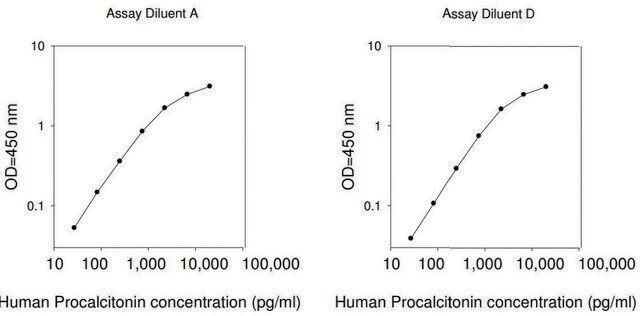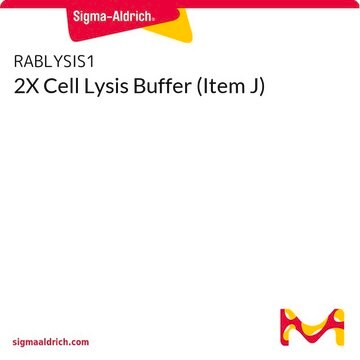RAB0007
Human RAGE / AGER ELISA Kit
for serum, plasma, cell culture supernatant and urine
About This Item
Productos recomendados
species reactivity
human
packaging
kit of 96 wells (12 strips x 8 wells)
technique(s)
ELISA: suitable
capture ELISA: suitable
input
sample type cell culture supernatant(s)
sample type plasma
sample type serum
sample type urine
assay range
inter-assay cv: <12%
intra-assay cv: <10%
sensitivity: 3 pg/mL
standard curve range: 2.06-1500 pg/mL
detection method
colorimetric
shipped in
wet ice
storage temp.
−20°C
Gene Information
human ... AGER(177)
General description
Immunogen
Application
Human RAGE / AGER ELISA kit has been used for the quantitative measurement of RAGE in cerebrospinal fluid.
Please refer to the attached General ELISA KIT Procedure (sandwich, competitive & Indirect ELISA)
Biochem/physiol Actions
Other Notes
Please type the word sample in the text box provided for lot number.
Los componentes del kit también están disponibles por separado
signalword
Warning
hcodes
pcodes
Hazard Classifications
Met. Corr. 1
Storage Class
8A - Combustible corrosive hazardous materials
Certificados de análisis (COA)
Busque Certificados de análisis (COA) introduciendo el número de lote del producto. Los números de lote se encuentran en la etiqueta del producto después de las palabras «Lot» o «Batch»
¿Ya tiene este producto?
Encuentre la documentación para los productos que ha comprado recientemente en la Biblioteca de documentos.
Nuestro equipo de científicos tiene experiencia en todas las áreas de investigación: Ciencias de la vida, Ciencia de los materiales, Síntesis química, Cromatografía, Analítica y muchas otras.
Póngase en contacto con el Servicio técnico









